Fan Fiction is a zine I published back in April. A satire. A novella. It starts as music criticism about the work of Taylor Swift and becomes—tee hee—a “genre-defying project” about fandom, fame and storytelling. Like all good things, it came about as a low-stakes, between-projects outlet and ended up being a sneak-attack-perfect container for ideas I’d been kicking around for years, very freeing and FUN. Now, I’m fixed! All you people lead your little lives, and I’m…fixed…
You can read or print it at mirrorball.org, or order a beautiful copy printed by Heavy Manners. Full-bleed with a risograph-printed cover in a surprise color. I CAN’T GET OVER HOW GOOD THEY LOOK! (And if you’re in L.A., go to Heavy Manners!!!)
This post is dedicated to the world of this project, because the only thing that allowed me to kill my darlings while working on it was knowing I could later resuscitate those darlings in a blog post. By “darlings” I don’t mean my own writing, but references and images I’d been saving for years toward some kind of internet/fandom-inspired project, interspersed here with quotes from the zine. Wake up, darlings…it’s showtime…
















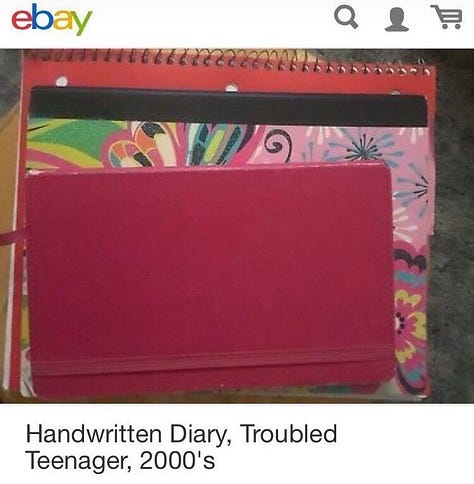
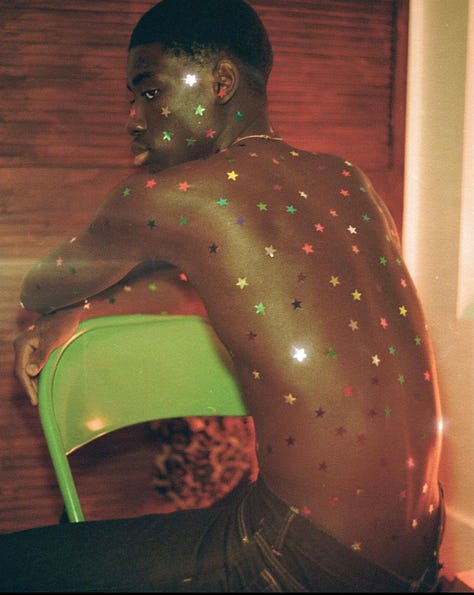

And here are random screenshots/a hateful shirt I saw at JFK. Accelerated nostalgia, Google watching you feeling like you’re being watched, winning @ art…
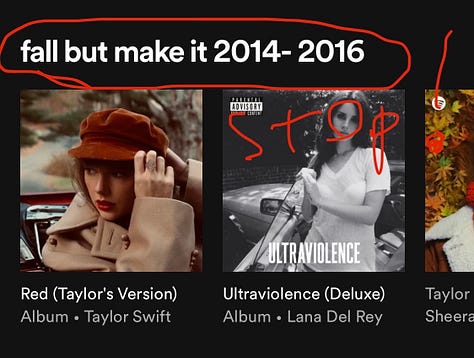
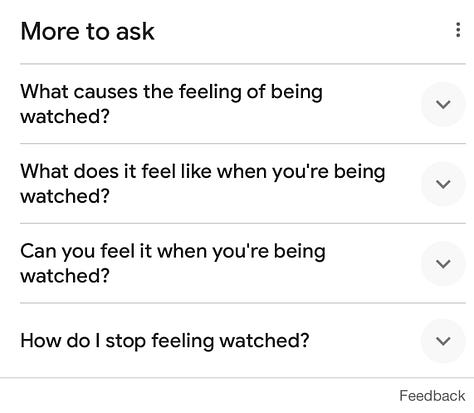

Along with the books and essays cited in the zine, these were also on my mind, or I’m just itching to recommend them:
Susan Sontag’s story “Pilgrimage,” about two teen fans tracking down Thomas Mann. “The zealot of seriousness in me, because it was already full-grown in the child, continues to think of reality as yet-to-be.” Also On Photography:
“The sense of the unattainable that can be evoked by photographs feeds directly into the erotic feelings of those for whom desirability is enhanced by distance. The lover’s photograph hidden in a married woman’s wallet, the poster photograph of a rock star tacked up over an adolescent’s bed, the campaign-button image of a politician’s face pinned on a voter’s coat, the snapshots of a cab driver's children clipped to the visor—all such talismanic uses of photographs express a feeling both sentimental and implicitly magical: they are attempts to contact or lay claim to another reality.”
Imagine if I’d known when I was 13 and hated my life because of Tumblr that part of what made me feel that way was the technology itself! Related screenshots from my YouTube—sigh—recommendations:

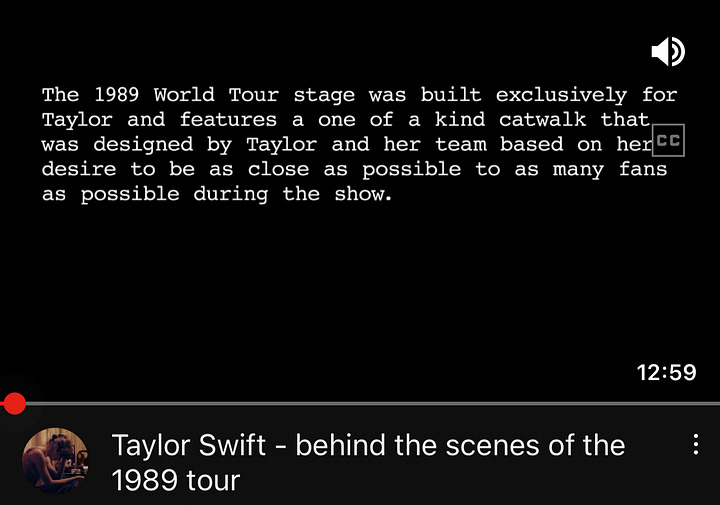
Seymour Krim’s essay “For My Brothers and Sisters in the Failure Business” about being raised by American culture in the ‘40s-’50s. Really just reads like it’s about the internet to me now:
“That’s what this democracy was for us, a huge supermarket of mass man where we could take a piece here and a piece there to make our personalities for ourselves instead of putting up with what was given at the beginning.”
Within the Context of No Context by George W. S. Trow. A short work of media criticism that somehow reads like a fairytale or Greek myth or sci-fi. Depressing and exciting to read something that viscerally captures the loneliness engendered by mass media. Also feels like it’s about the internet despite being 40+ years old:
“People are so frightened. There is so much distance between them and their protection. They reward anyone who can convince them that there is no distance. In the vast distance between the protection and the protected, there is space for mirages of pseudo-intimacy. It is in this space that celebrities dance.”
Mary Gaitskill’s essay “Victims and Losers: A Love Story,” for its ideas about exhausting victim narratives to avoid feeling the actual pain of having been victimized. Find it in her post about her stories “Secretary” and “Minority Report.” (Great triple feature!)
“Whatever the suffering is, it's not to be endured, for God's sake, not felt and never, ever accepted. It's to be triumphed over. And because some things cannot be triumphed over unless they are first accepted and endured, because, indeed, some things cannot be triumphed over at all, the ‘story’ must be told again and again in endless pursuit of a happy ending.”
Jason Sperb’s essay “Ghost without a Machine: Enid's Anxiety of Depth(lessness) in Terry Zwigoff's Ghost World” via The Daniel Clowes Reader—great on the affinity between teens and ghosts, suburban ennui and armchair nostalgia.
The Promise of Nostalgia by Nicola Sayers includes a section on teen-me’s internet output; it was truly rewarding to see aspects of my image-making and world-organizing contextualized far beyond my awareness or intention. Like maybe they were forward-looking and hopeful, not just mimicry and existential lack :-) This book also introduced me to Arjun Appadurai’s term “armchair nostalgia,” and the parts of his book Modernity at Large about consumption as work, which made the strange contracts of online fandom even more apparent to me.
Damon Krukowski’s Ways of Hearing and The New Analog made me see how newer listening technology is literally, physically disorienting, even antisocial—and how this feeds the parasocial connection to a singer, and to the idea of a faraway, realer reality, as opposed to one’s immediate, physical reality.
Some friends and readers said Fan Fiction is my I Love Dick. That book is so in my DNA that I didn’t even notice. I have two journals from high school that say on the spine "mostly I Love Dick quotes." At 19 I wrote an article that compared Taylor Swift to Chris Kraus’s character. Is Fan Fiction what happens when the Chris becomes the Dick…
Also DNA: My Pinup: A Paean to Prince by Hilton Als and a lot of his writing about experiencing twinship with performers and writers. His White Girls also introduced me to The Member of the Wedding (“the we of me”!!!)—I want to emphasize that I think the play is perfect, the one to read, even though I love the novel, too.
Fiction: Operation Shylock, Erasure and Pale Fire for obsession, doppelgängers, doubles, hoaxes, delusions of grandeur, meta-commentary, self-annihilating narrators, literary envy and unhinged letters.
Maybe the thing to know about The End of the Affair is that when my friend Rose gifted it to me, she wrote, “TW: who gets to tell the story.”
The Death of the Heart by Elizabeth Bowen—wee Portia is like an early Harriet the Spy, a diarist punished for honestly documenting the people around her. Not analogous to Fan Fiction, plot-wise, but these exchanges haunt me:


At the beginning of the year all this stuff came together in a work of writing I just kept sending out for help. Thank you to my friends who gave me such thoughtful feedback, detailed edits, and long phone calls: John Biggers, Maya Binyam, Dustin Guy Defa, Sam Freilich, Laia Garcia-Furtado, Rose Lichter-Marck, Cristin Milioti, Talene Monahon, Maya E. Rudolph, Matt Wolf. I told Matt that I felt like I should just post the story as a pdf because I was impatient and it seemed too long and complicated to submit anywhere. He was like, it should obviously be a zine. He was right! And then writing it became even more fun. In a storm, in my best dress, fearless…
Design-wise, I knew that Part One should look like a literary journal, Three would just be emails, but Two was harder to pin down. I eventually told myself it would be collaged like a fanzine. I scanned doodles, stickers and trinkets using a phone app. Thank you to Audrey Libatique for organizing these files. Thank you to me for never throwing anything away. Thank you to Chrissy Rhee for designing the zine’s perfect cover and laying out the inside, making all my InDesign dreams come true. THANK YOU!!!!
Then one night I was up late, listening to the Breeders and sorting these jpgs when I realized that I was doing the same thing I’d done for the Rookie Yearbooks—matching each object to its rightful spread, placing it in relation to a specific line of text. It dawned on me: Part Two wasn’t “fanzine,” it was Rookie! Which makes sense, because its voice is more confessional and ranty than other writing I’ve published since Rookie folded. There is a brief reference to the Yearbooks in Fan Fiction, only for how demanding that process was, and here I was, recreating one of its joys. Of course a project fueled by fandom would reconnect me with my teen self in other ways. Heart hands!!!!
The Rookie Yearbooks (from these stories):
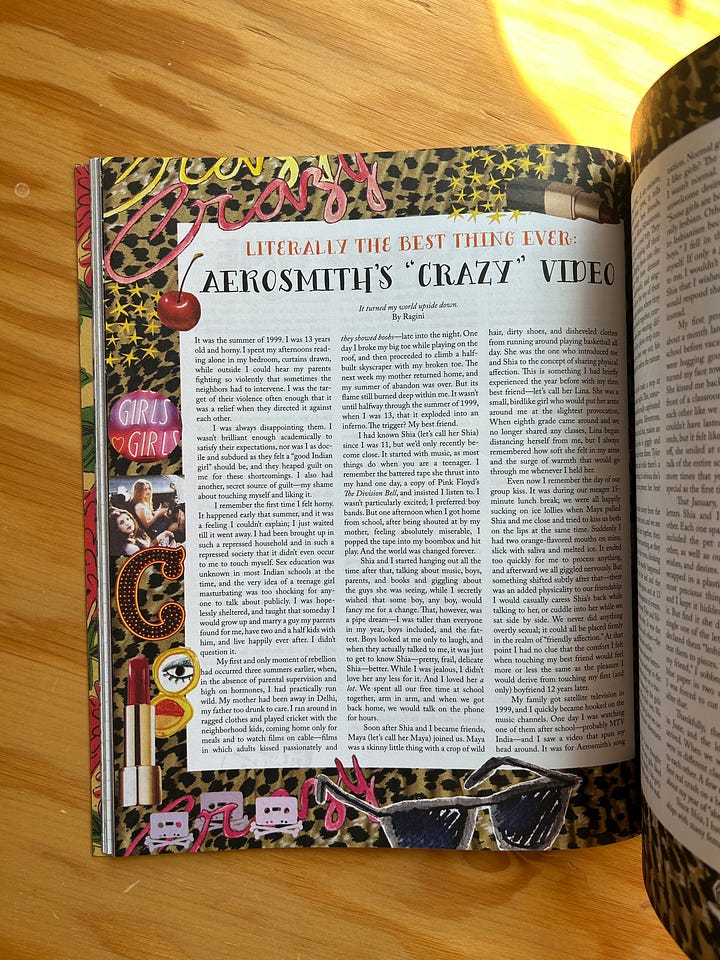

I should note that Sonja Ahlers designed many of those Yearbook spreads, and our covers, and when she didn’t design them, she greatly influenced them, and Rookie’s visual identity, and me. I recently wrote about this in an essay for her treasure trove of a book.
I decided the zine had to be done before The Tortured Poets Department would come out and overwhelm me with new possibilities. I used some of my time at Monson Arts to sit in a glorious studio and cling to my sanity I mean zoom with Chrissy while snow blanketed the empty streets below. When it was time to cut myself off, John Biggers helped me put the zine online. Many thanks to John and to Bathsheba Nemerovski for printing and distributing the zine in Chicago. Thank you Marian Chudnovsky for printing and distributing it in New York. Thanks to all the spots listed here for carrying a free zine. Thank you Heavy Manners in L.A. for now printing and selling it, where it’s in such good hands and good company!
If you want a deeper dive (sicko) (also, thank you): My friend Haley Nahman had me on her great newsletter’s podcast, where we discussed Reddit, writing and shame. I also talked to Max on the Longform podcast about the zine, ambition and our last interview, 10 years ago…Longform is one of my favorites, now come to its very triumphant end, and I was very honored to make it on just in time. I also x2 talked to Jasmine Vojdani at Vulture on my last day in Monson, after not talking to anyone but the other residents for approx 1,000 years. I felt stupid after so I’ll let you be the judge of that and if I’m deserving of love or should rot in hell, etc., but I really appreciated her write-up.
I am also grateful for the level of engagement by Leigh Stein, Molly Mary O’Brien, Olivia Craighead, and Allegra Rosenberg. My friend Annie Hamilton wrote a sharp, sneaky, very sweet article that had people stopping both of us on the street to ask what was real. Thank you, Annie, I love your mind!
Finally, thank you, Dear Reader. This has been a hoot, a very thoughtful hoot, and it’s left me with a great sense of possibility. OUT: fear, artistic purgatory, relying on institutional support. IN: risk, self-publishing, keeping things loose, tapping into being 15 and hating everyone/loving everything. As Gary Gilmore once said, Just Do It.



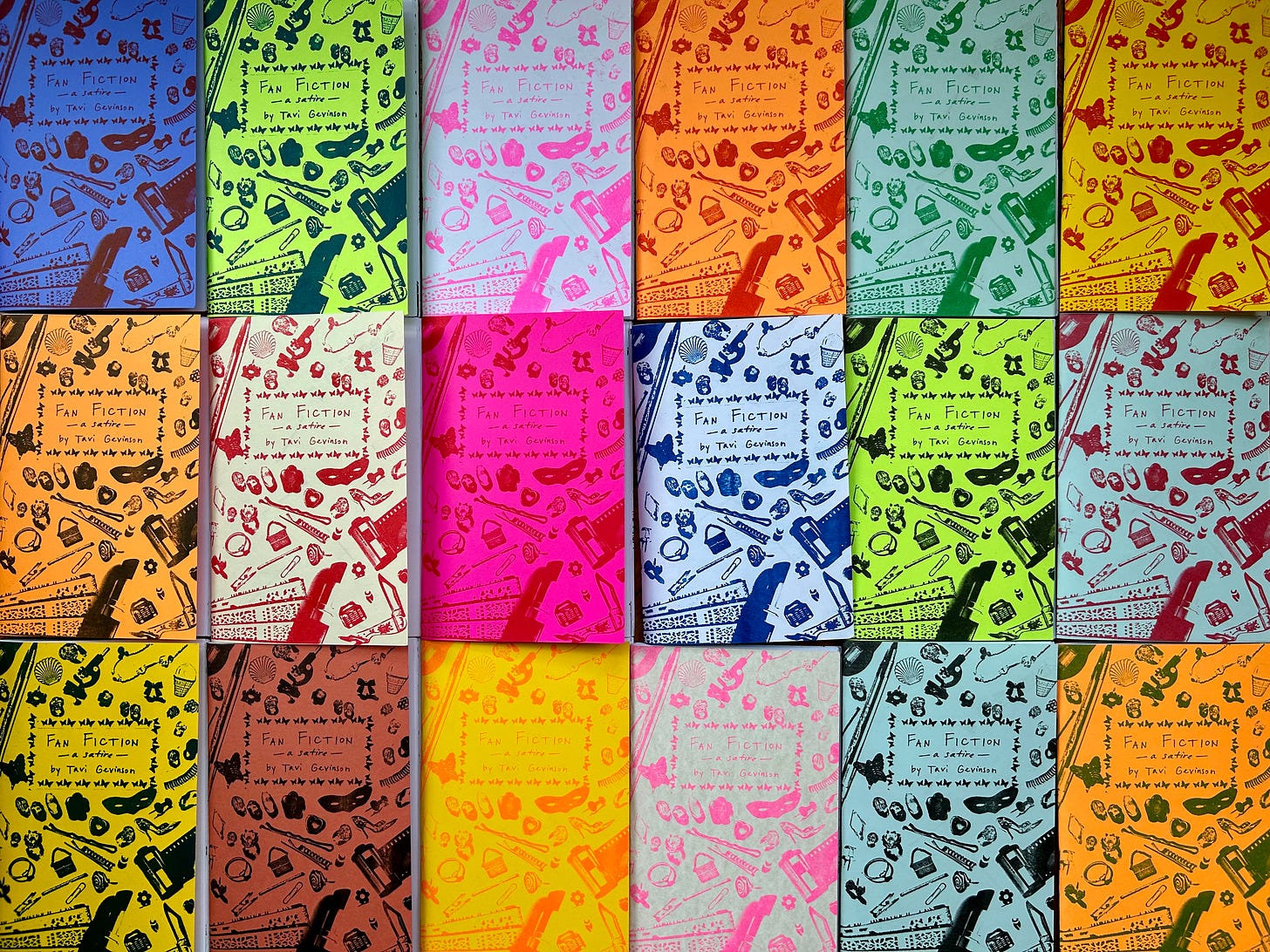



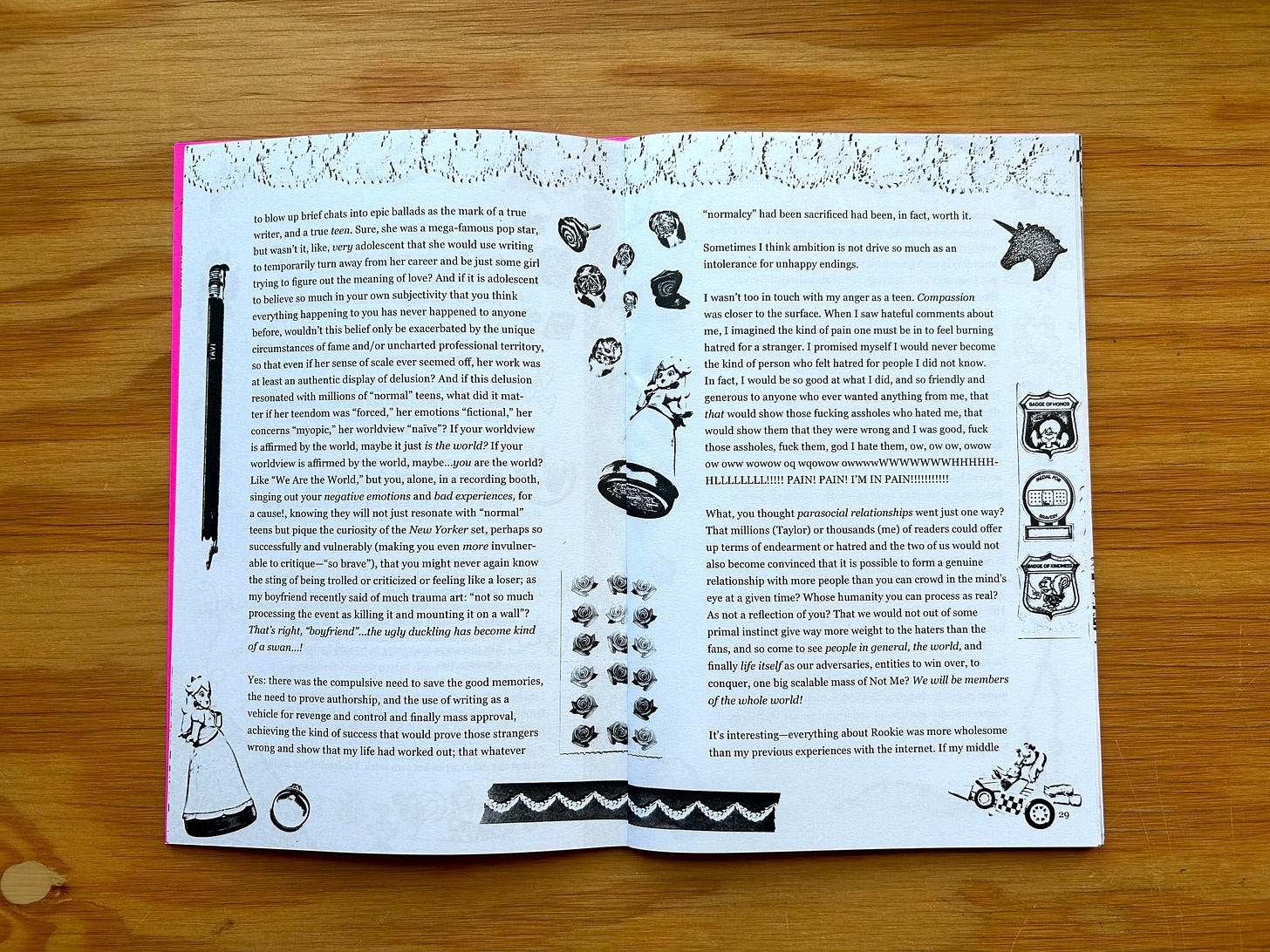
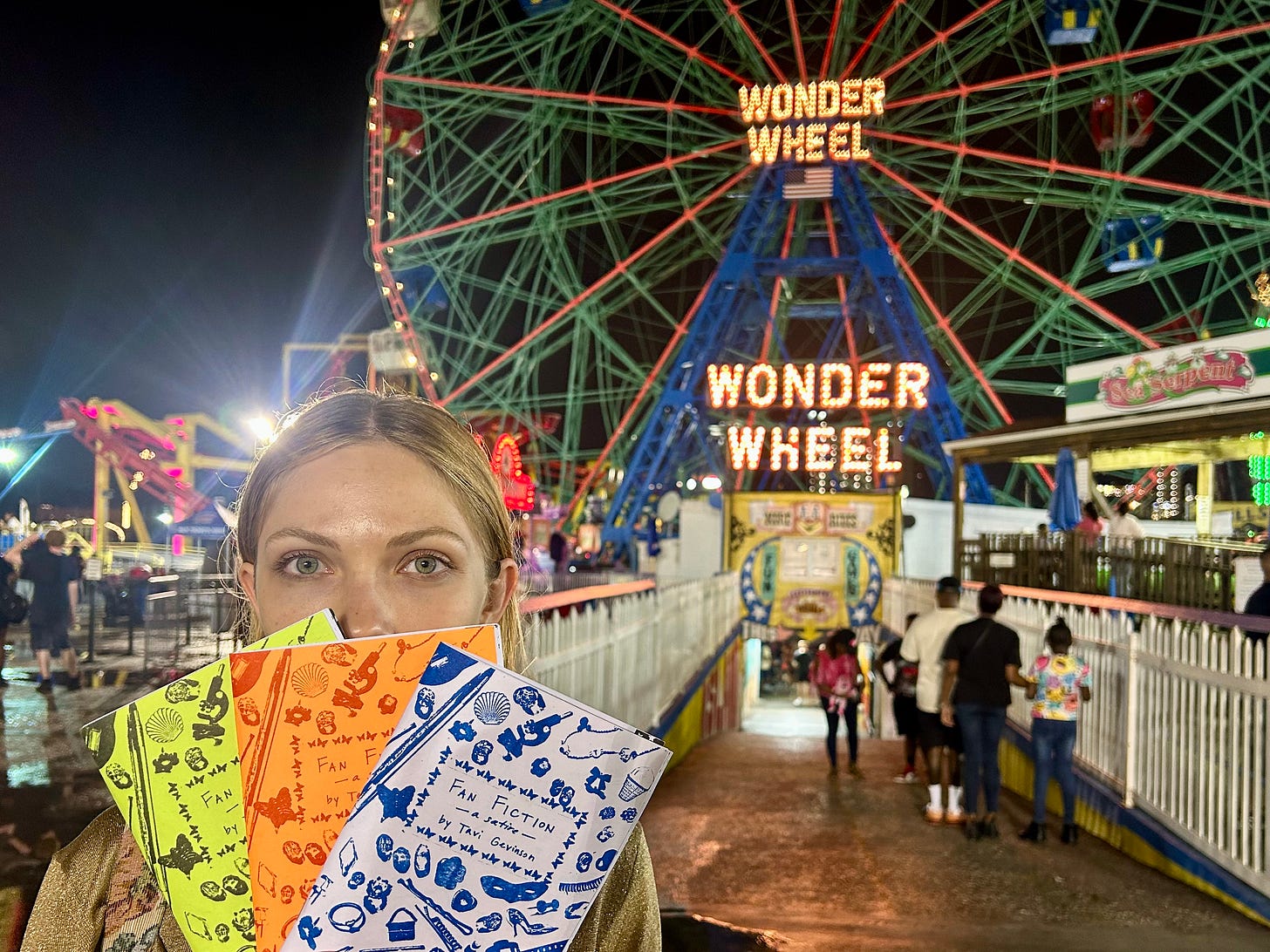



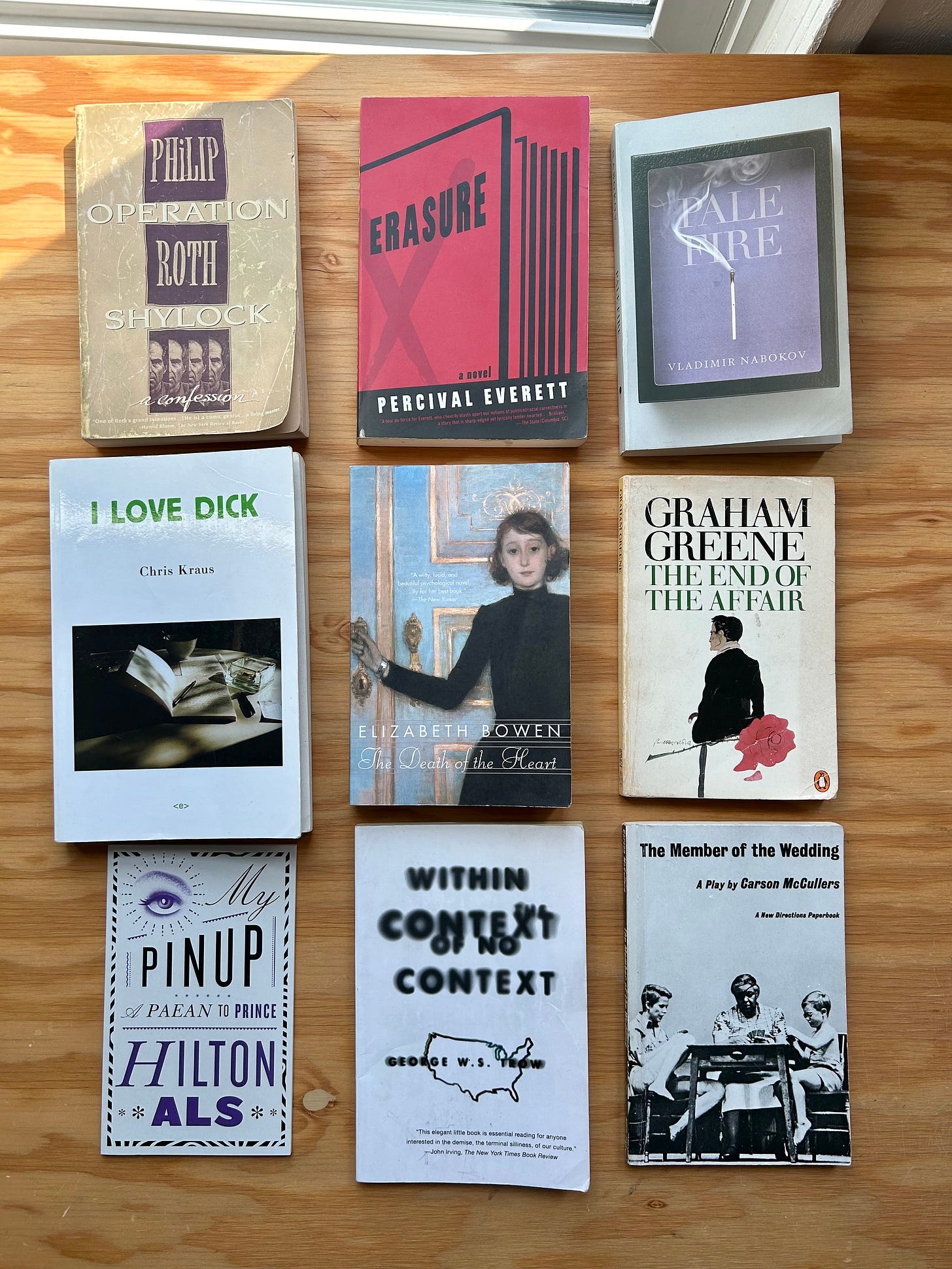
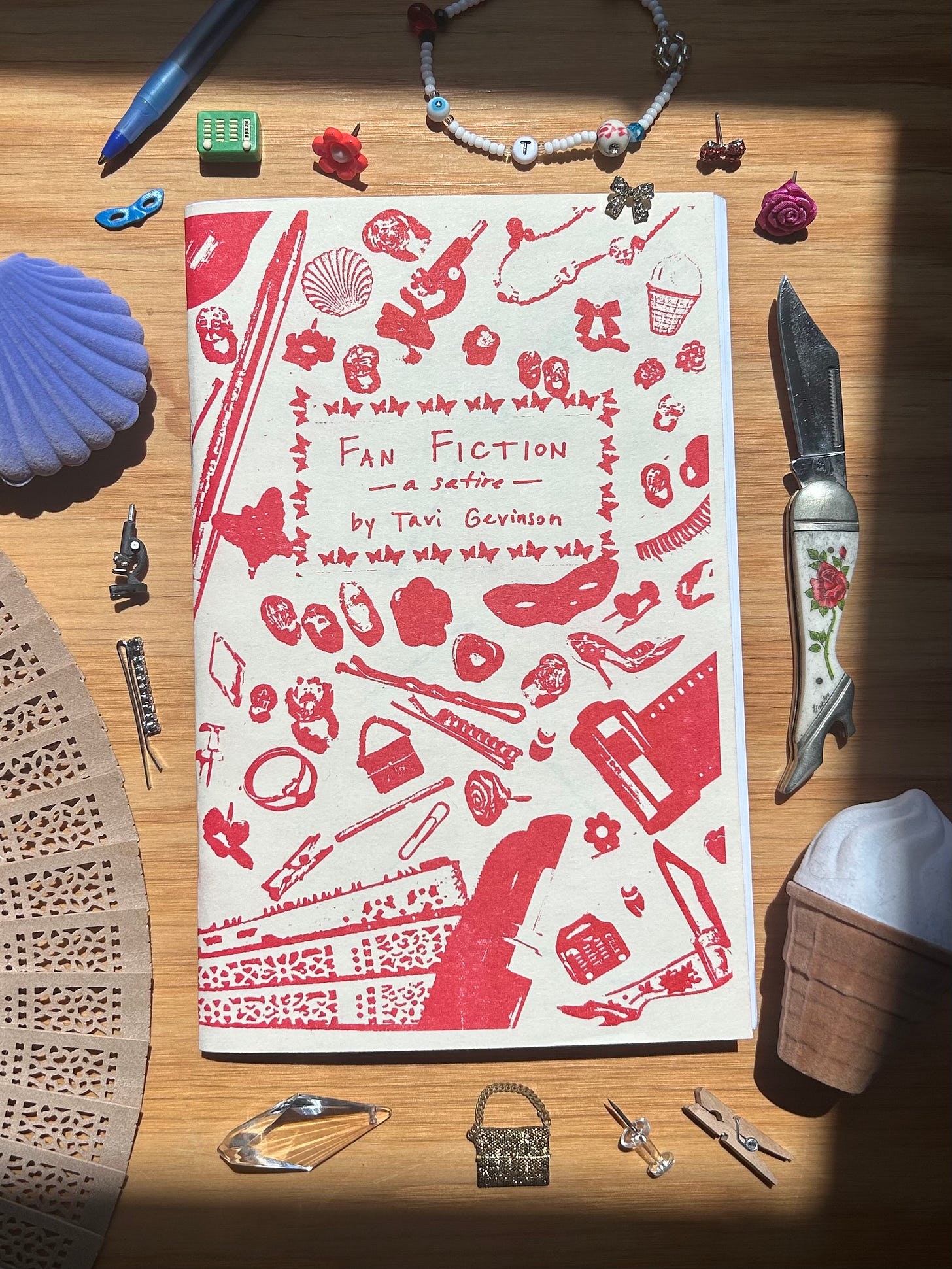



![Screenshot of a text exchange. First text reads “Walked into Topos in Ridgewood to distribute zines and someone was reading the zine on their laptop!!! Handed them a physical copy [smiley face emoji with hearts] This sounds too crazy to be true but it is!!” Second text reads “That’s amazing!!!!!” [Happy crying emoji] Screenshot of a text exchange. First text reads “Walked into Topos in Ridgewood to distribute zines and someone was reading the zine on their laptop!!! Handed them a physical copy [smiley face emoji with hearts] This sounds too crazy to be true but it is!!” Second text reads “That’s amazing!!!!!” [Happy crying emoji]](https://substackcdn.com/image/fetch/$s_!wQjI!,w_1456,c_limit,f_auto,q_auto:good,fl_progressive:steep/https%3A%2F%2Fsubstack-post-media.s3.amazonaws.com%2Fpublic%2Fimages%2F25e6dacf-a4ce-48bb-a94a-8159d2992d7b_1170x932.jpeg)